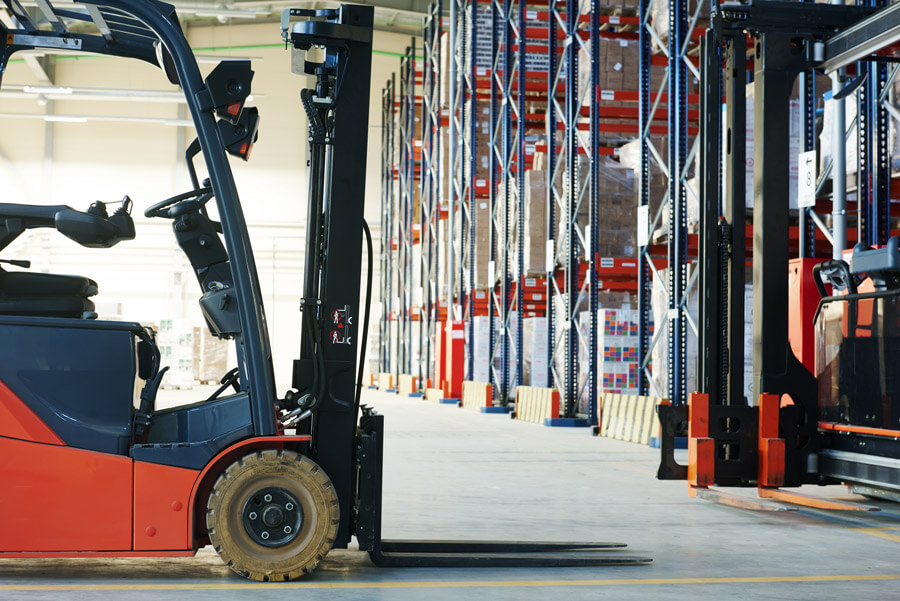Inspection is a crucial part of a comprehensive forklift maintenance checklist. It’s what ensures that your inventory stays safe and, most importantly, your employees don’t suffer injuries because of a massive forklift breakdown or accident.
But figuring out how often should operators inspect their forklift can be a challenge. You can probably find conflicting information online and might be hesitant about the need for a forklift maintenance log in the first place.
To help you figure out how to protect your staff and run a thorough truck PM checklist, let’s explore everything you need to know about forklifts’ maintenance frequency.
Are You Inspecting Your Forklifts Often Enough?
Most companies understand the importance of training forklift operators to handle the machinery with care and attention to the environment. As far as a forklift or truck PM checklist practices go, these safety measures are usually a given.
But at the same time, it’s crucial to put your employees in a position to handle the machinery according to forklift service manuals, which requires the machines themselves to be regularly checked for any breakdowns or areas of concern.
And unfortunately, coming up with a specific number in terms of a forklift pm checklist is something that many companies struggle with. And as a result, when it comes to a forklift checklist, weekly or even monthly checkups don’t always occur, putting everyone operating them at risk. And that’s especially surprising when there are official guidelines in place.
So, how often should operators inspect their forklift according to the Occupational Safety and Health Administration (OSHA)?
OSHA requires forklift operators to perform daily inspections of all forklifts, including rough terrain forklifts, narrow aisle lifts, warehouse lifts, and others. These guidelines are part of the forklift pre-shift inspection checklist and aim to minimize the risk of something going wrong.
If you want to ensure that your forklifts are up to the highest safety standards and maintained according to OSHA recommendations, then daily inspections by trained personnel are your best bet. While that does take time and additional planning, putting the safety of your employees at the forefront of how you run things is a good practice to employ.
If you don’t think that daily inspections are possible or realistic, you should aim for at least 3-4 checks per week, and that is only if the forklifts don’t receive too much use daily and perform without any issues.
Forklift Maintenance Checklist: What Should Be Included?
Since forklift maintenance should be done daily, it’s a good idea to make the process as efficient as possible. And that requires a forklift checklist that allows personnel to go through each step quickly while also ensuring that they don’t miss any crucial details that could leave room for error.
But what exactly should be included?
One thing to consider is that some items on the list will only be applicable to you if you have a certain type of forklift. But overall, you can use it as a general guide for creating your own checklist that will help your employees go through the process faster.
Here’s the list:
- Anything unusual
- Horn
- Lights
- Safety equipment
- Forks
- Breaks
- Hydraulic system
- Tires
- Accelerator
- Battery
- Gauges
- Cables
- Belts
- Engine oil
- Oil pressure & leaks
- Fuel
- Radiator
- Steering
As your employees become more familiar with the forklifts and the checklist, the process will only become more efficient, and people will likely be able to notice something is wrong immediately. But at the same time, make sure to keep logs of each check and ensure that each new employee is introduced to the process and knows its importance.
Forklifts Maintenance: What Happens If Your Forklift Doesn’t Pass Inspection
While avoiding forklift accidents is the primary function of having a preventative maintenance process, you must also educate your employees on what to do when something does go wrong or isn’t right during a checkup.
If you don’t, the employee may underestimate the issue and decide to operate the forklift anyway, which could put them or others in danger.
To avoid this, instruct all employees to immediately report to a supervisor if the checklist brings up an issue with a forklift. The supervisor can then evaluate the situation further and decide the best approach to ensure everyone’s safety.
And if the problem that’s discovered can be handled by someone on your team, it’s best to turn to experienced professionals who can offer timely and proven forklift repair solutions that help resolve any issues quickly.
Work with Texas Motive Solutions
Nothing will put a dent in your production like a broken or dead forklift battery, and nothing will put a dent in your bottom line like expensive battery repairs and replacements. Manage your forklift battery repair costs, minimize downtime and keep your employees safe with regular forklift battery maintenance from Texas Motive Solutions. We offer comprehensive preventative maintenance that will ensure your forklift batteries remain in top shape and keep your forklift fleet running smoothly. Our experienced technicians are trained in spotting issues early on, helping you keep your battery repair costs low and your warehouse safety ratings high.
To learn more about our services, call (888) 316-2459 or fill out a form, and let’s get started as soon as today!



